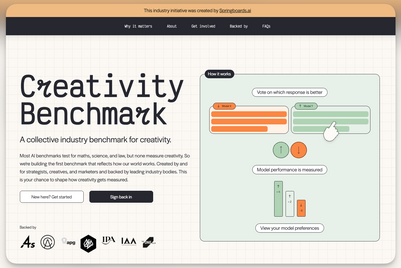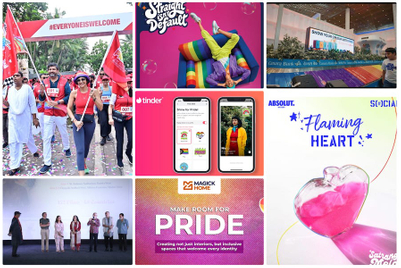
Creativity is often romanticised, but for David Droga, it has been a relentless practice of imagination, disruption and reinvention. Speaking on the penultimate day of the Cannes Lions International Festival of Creativity 2025 in a session titled ‘Care’s Paradox: Fragile, but Formidable’, Droga, the founder of Droga5 and outgoing CEO of Accenture Song, reflected on a career defined by his ability to shape ideas that challenge expectations, often against prevailing industry wisdom.
In conversation with Tim Nudd, creativity editor at Adweek, Droga opened with an observation on the festival itself. “Creativity is the oxygen of the festival,” he said, adding, “but yet as it gets bigger, more people abstain from being part of the main talks in the Palais.” The irony, in his view, is that creativity remains essential even as its centrality is diluted by the scale of the event.
Tracing his journey from Australia to South East Asia, then London, and eventually New York, Droga described himself as someone who has always been drawn to challenges. “From the day I was hired to be part of advertising as a creative, I was so blown away that I was paid to use my imagination. It was like a gift and I held on to that,” he said.
“But at the same time, I didn’t want to be called ‘an advertising person’. I wanted to use my imagination and solve problems. I was trying to push boundaries and break plans, which were laid out. I was pretty good at working with great people and threw myself into challenges,” he added.
One of those early challenges was moving to South East Asia, which at the time was viewed as a destination for creatives winding down their careers. “I moved there when I was young and proved my worth. And then I moved to London. I’m restless, like every great creative is. The only way to show appreciation of something is to do something more with it,” he explained.
In 2006, Droga made a pivotal shift, leaving his role as worldwide chief creative officer at Publicis to launch Droga5 in New York. “I thought I don’t have to be for everybody and just created work for what I loved,” he recalled.
One of the agency’s earliest pieces, for Ecko Unltd, 17 years ago, marked a turning point not just for Droga5, but also the Cannes Lions awards format.
“It was just three or four of us that worked on it. We collaborated and made great stuff. It was the first case study that ever entered into Cannes. All those who now have to work on case studies to enter Cannes, you can hate me as I was the one who started it. I needed five minutes to explain what we did. So, we created a case study to explain it to people. I apologise a little bit,” he said.
For Droga, the process of creation is grounded in belief. “Being creative isn’t about proving how creative one is. It’s about supporting a belief. When one gets a brief, start with what the end reaction should be as that gives one an idea of what is needed to be created. People’s participation in your idea is part of your idea. We won a Grand Prix. It gave us as an agency the courage to make stuff that could break the internet.”
Asked to distil the principle that underpins his career, Droga replied, “It was my ability to care, deeply, about what I do, who I do it with, how I work and how I treat people.” He attributes this to his upbringing and his activist mother. “I did not go to college. Until November, I am the CEO of a $20 billion company. You don’t need to go to college to care.” Or to come up with original thinking, it appears.
Droga’s emphasis on originality was apparent in the Tap Project for UNICEF. “A lot of companies have responsible people who told me not to do it. I call them responsibly wrong. What they do is stop uniqueness and originality. Every creative person should feel the same way.”
“We were called the viral agency – I just wanted to be called a smart agency. With the ‘Tap Project’, we wanted to try and change the way people look at charity. We tapped into tap water which was free and solved for things that people needed. It was my mother’s favourite piece of work I created. It raised $10 million from a standing start.”
Droga argued that the strength of an idea lies in its ability to foster collaboration. “Creativity opens new connections. I’ve got people to collaborate on things that are not traditional or obvious. Like we called Gucci to add a page on the jacket and one thing is for sure that brands and people want to participate in cool things.”
This belief in collaboration and ambition drove the decision to partner with Accenture. “When I made the deal with Accenture, people thought it would be the death of creativity. No, it wasn’t. I told people at Droga5 that we bought Accenture rather than the other way round.”
Reflecting on the agency’s internal culture, Droga said, “Everyone joined Droga5 for creative but stayed for production and account managers.” He cited the work for The New York Times as illustrative of his approach. “Nothing that we produced was more impactful than what NYT produced. We had to create a vehicle to tell their story. We used videos and pictures from their archives for this film.”
“I’m a sucker for great films and that’s the most powerful tool ever. It could be six seconds or two minutes. I love making things that connect with people and have depth in it,” he added.
Droga offered insight into Coinbase’s Super Bowl ad, the first under the Accenture Song banner. “We as an industry are against apathy, mediocrity and formulae. This was the first piece of work we did at Song. Super Bowl is all about celebrities and multimillion-dollar production budgets. The above was voted the best and worst commercial. But pieces of work don’t need to be for everybody. 20 million people took a picture of this stupid QR code and linked it to Coinbase. But 80 million were upset. Our job is to not satisfy everybody.”
He returned to a recurring theme: the power of conviction. “Game of Thrones (GoT) is a great example of you can talk people into doing anything if your idea is good,” he said, referencing the campaign where Droga5 convinced HBO and Bud Light to stage a crossover execution.
“For me to tell the GoT client that our idea is that we want to kill the Bud Light, which was a big iconic multi-million-dollar campaign in America, and they said how the hell are you going to do that? And I said, you watch, I am going to convince the client to kill the Bud Light. But if they didn’t, we had backup,” Droga recalled.
He acknowledged HBO’s willingness to let the agency do something bold. “And out of respect for Weiden + Kennedy, which did the great Bud Light campaign, if they are going to do it and whoever is doing the knight’s part, we will step aside and let the Weiden people do the Bud Light people. And it could be a collaboration between two frenemies, which never happens.”
Reflecting on the broader arc of his work, Droga stated, “The intent must be so strong as to create the situation. And the reaction.”
“If I think an idea is the right thing for the right audience, at the right time and context, figuring out how to realize it is the easy part,” he added.
Looking ahead, Droga’s view of the industry remains pragmatic. “The industry has been propelled by technology, which is why I sold to Accenture. We had to do things that we could never do. I love making films but I want to create products, events and more with the same audacity and care. We can’t sit on the sidelines; we have to embrace it. We are the people who will give it meaning and yes, the model will change, but that’s what I’m excited about.”


.jpg&h=334&w=500&q=100&v=20250320&c=1)
.jpg&h=334&w=500&q=100&v=20250320&c=1)
.jpg&h=334&w=500&q=100&v=20250320&c=1)







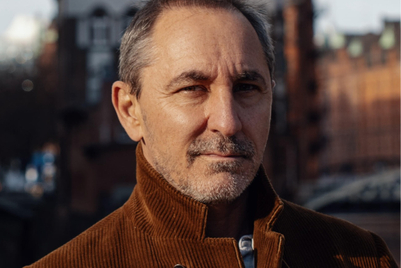
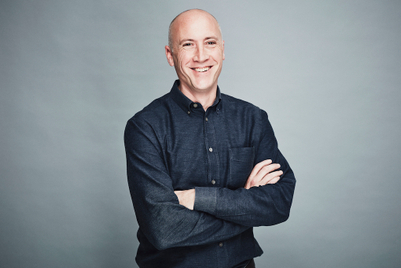
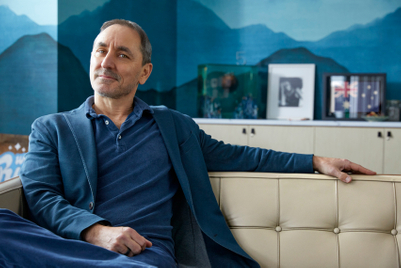
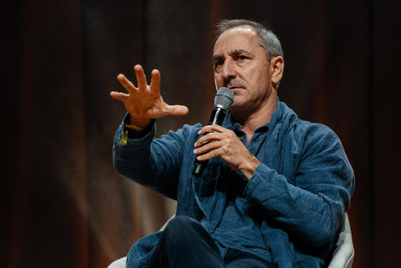
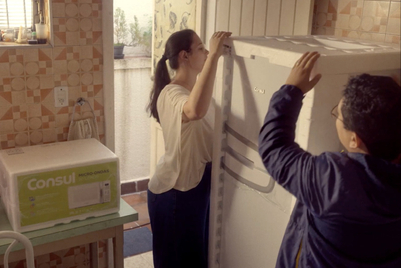
.png&h=268&w=401&q=100&v=20250320&c=1)
